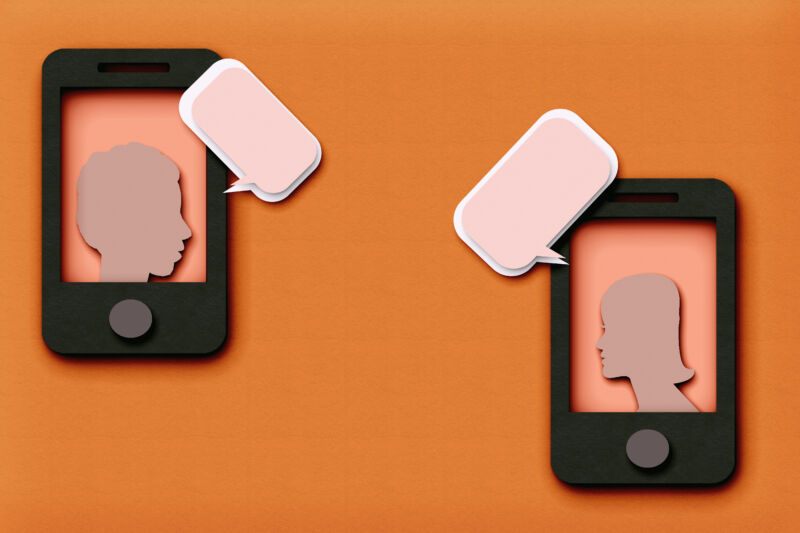
Political polarization in the US has become a major issue, as Republicans and Democrats increasingly inhabit separate realities on topics as diverse as election results and infectious diseases. An actual separation seems to underly some of these differences, as members of the two parties tend to live in relatively homogeneous communities, cluster together on social media, and rely on completely different news sources.
That’s not a recipe for a functional society, and lots of work has gone into exploring the impact of polarization, as well as possible means of reducing it. Now, a team of researchers has tested whether social media can potentially help the situation by getting people with opposite political leanings talking to each other about controversial topics. While this significantly reduced polarization, it appeared to be more effective for Republican participants.
Anonymity is key
The researchers zeroed in on two concepts to design their approach. The first is the idea that simply getting people to communicate across the political divide might reduce the sense that at least some of their opponents aren’t as extreme as they’re often made out to be. The second is that anonymity would allow people to focus on the content of their discussion, rather than worrying about whether what they were saying could be traced back to them.
Of course, they also recognize that this could backfire badly. Online communications are already generally less civil than in-person interactions, and anonymity allows people to engage in them without repercussions.
The researchers realized that they couldn’t have any sort of control over conversations on existing social networks. So, they built their own application and hired professionals to do the graphics, support, and moderation. The software was placed in both the Google and Apple app stores, and handled asynchronous text-based messaging. All messages were kept private to the two users exchanging them. It was described to its users as a new platform for one-on-one discussions of controversial topics named DiscussIt.
The researchers also worked hard to keep participants from recognizing that using the app was part of a study. So they used YouGov to recruit people who had participated in other studies and had already stated their party preference as part of that. Their feelings about political opponents and some politically controversial topics—gun control and immigration—were explored before and after their use of the app as part of surveys designed to explore other issues.
Participants were induced to take part via payment for the download and use of the app.
Calming conversations
People were randomly assigned to a few conditions. Some didn’t use the app at all and were simply asked to write an essay on one of the topics under consideration (immigration or gun control). The rest were asked to converse on the platform about one of these topics. Every participant in these conversations was paired with a member of the opposing political party. Their partners were either unlabeled, labeled as belonging to the opposing party, or labeled as belonging to the same party (although the latter is untrue).
Both before and after use of the app, participants answered questions about their view of politicized issues, members of their own party, and political opponents. These were analyzed in terms of issues and social influences, as well as rolled into a single index of polarization for the analysis.
https://arstechnica.com/?p=1962109

